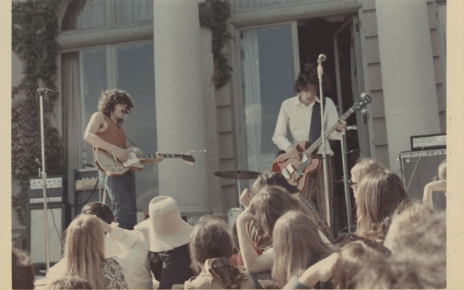A unique look at a movie-book combination, the film True Story analyzes how the real-life crime drama about convicted murderer Christian Longo was made into a book written by former New York Times journalist Mike Finkel.
The film opens with a teddy bear being dropped into a suitcase containing the dead body of a very young girl. The suitcase is then closed and dropped into a body of water off the Pacific Ocean. The scene changes and we then see reporter Mike Finkel, played by the versatile Jonah Hill, in an African city interviewing some teenage boys who claimed to have been abused by the owners of the cocoa plantation where they were allegedly enslaved. This scene is extremely important to the story in that it sets up for Finkel’s subsequent dismissal from The New York Times for fabricating parts of this story.
However, the scene quickly moves again, this time to Cancun, Mexico, where another man who claims to be a New York Times reporter Mike Finkel meets a young woman in a church, but is quickly arrested and extradited to the United States after the rendezvous with this woman. We then find out that this man is Christian Longo, played splendidly by James Franco, who is accused of murdering his entire family including his wife and his three young children. Longo subsequently fled to Mexico and stole Finkel’s identity to avoid prosecution, but we pick up his story upon his arrest.
After Finkel is made aware that Longo had been pretending to be him, Finkel reaches out to Longo in jail and they forge an unusual relationship. After Finkel loses his job at the Times, he is looking for redemption through Longo’s story. Longo, on the other hand, is looking to Finkel to find a way to his own absolution. While both men manipulate the relationship in ways to benefit themselves, Finkel invests his entire reputation on Longo and an interesting dialogue and drama ensues.
The film was a bit confusing in the first twenty minutes regarding the journalistic integrity of Finkel’s African story and why he was dismissed from the Times and blackballed from other publications. We do know that Finkel did something that was really wrong in his story, but it is just not clear on the details. This may have been because it is necessary in setting up Finkel’s reasons for pursuing the Longo story, but in the interest of time, was just given enough space to bring that understanding that it was a journalistic integrity issue. However, there is not much else negative to say about this film.
The camera angles, the lighting, and the scene changes lent well to the dramatic and sometimes dark subject matter. We see Longo’s family life through flashbacks in the form of Finkel watching Longo’s home movies on a computer screen as well as through Longo’s own dreams. These scenes are often muted in color and sound in ways that mirror the dreamlike state of the flashbacks.
We also see Finkel’s wife, Jill, played by Felicity Jones, struggle with her husband’s co-dependent relationship with an accused murderer. Her character, who tries to faithfully support her husband’s efforts, comes to the realization that Longo has dark tendencies. This transition from naiveté to anger and distrust is flashed through with scenes of her piano performance of a Gesualdo composition, fitting since Gesualdo murdered his own wife and lover after the discovery of the affair.
While Jonah Hill was just okay in his role as Finkel, barely believable at times, especially in the early scenes, James Franco was the perfect Longo. He portrayed a deeply troubled man that we hope did not really murder his family as we got to know him through his conversations and interactions with Finkel, even with his levels of psychotic tendencies. The scenes between Finkel and Longo were extraordinary and brought the film up to a higher level of drama than expected. Franco really carries this movie and he has my vote for Best Actor of 2015.



